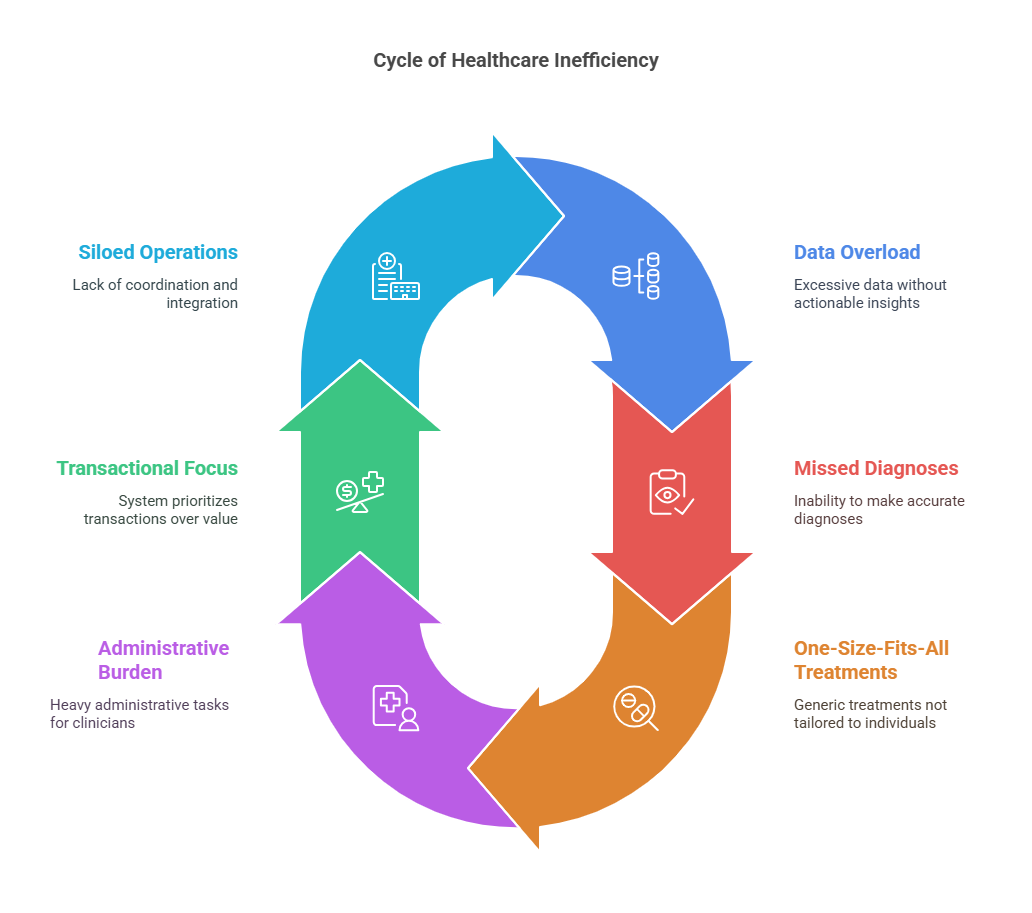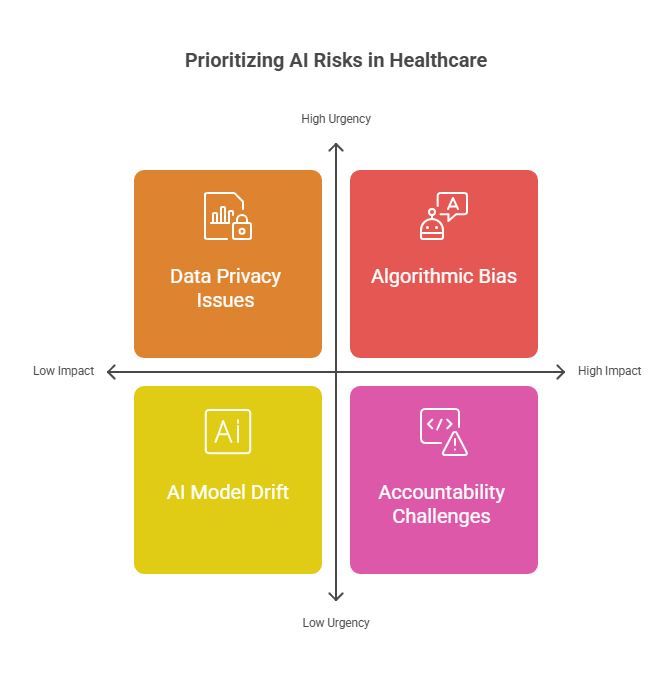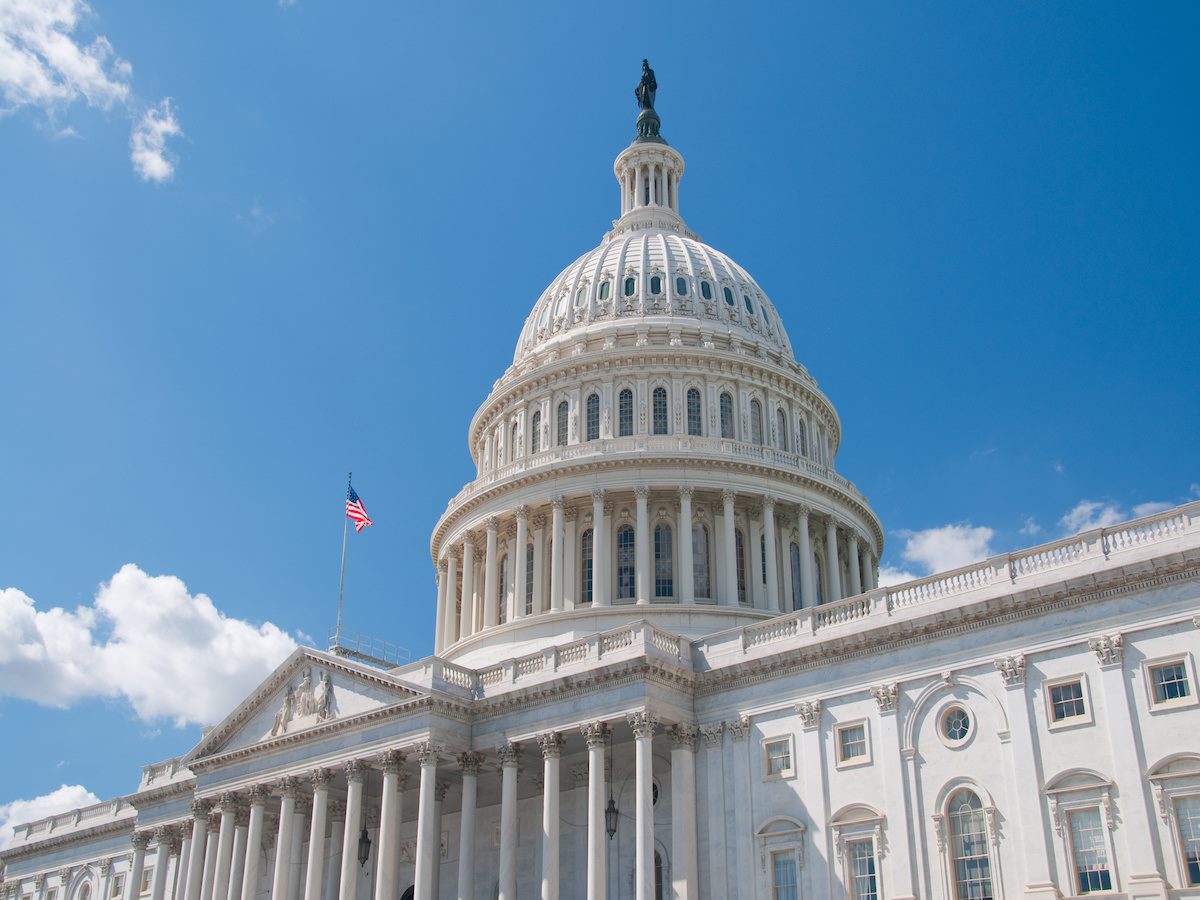Let's stop pretending. Our healthcare system isn't just strained; it's fundamentally cracking under the weight of its own complexity, cost and maddening inefficiency.
We talk about "healthcare," but what we often deliver is reactive sick care — a costly, complex maze navigated best by the fortunate and the wealthy, leaving millions behind. Burnout is rampant among clinicians treated like assembly-line workers. Costs are astronomical, threatening to bankrupt families and the nation. We generate mountains of data yet seem incapable of translating it into genuine, widespread health. Is this sclerotic, bureaucratic mess the best we can do?
The US government, often perceived as the epitome of slow-moving bureaucracy, is surprisingly investing heavily in a radical solution: artificial intelligence.
The Problem: More Than Just a Fever
This isn't just about fixing a few processes; it's about diagnosing a system that suffers from chronic inefficiency and a lack of genuine intelligence.

We're drowning in electronic health records, claims data, genomic sequences — an ocean of information. Yet, diagnoses are missed, treatments are one-size-fits-all, administrative tasks crush clinicians' spirits and predicting the next public health crisis often feels like reading tea leaves. The system is designed for transactions, not for proactive, personalized well-being. It rewards volume, not value. It operates in silos, not as a coordinated ecosystem focused on health. This isn't a minor ailment; it's a systemic disease crying out for a revolutionary treatment.
Related Article: From Sick Care to Smart Care: The AI Overhaul of Modern Medicine
The Unexpected Prescription: AI Gets Drafted by DC
Forget incrementalism — even the federal government recognizes that AI isn't just another tool; it's a potential game-changer for national health.
Believe it or not, the corridors of power in DC are buzzing about AI. Agencies you might associate with paperwork and regulations — Department of Health and Human Services (HHS), the National Institutes of Health (NIH), the Centers for Disease Control and Prevention (CDC), the Centers for Medicare & Medicaid Services (CMS), the Food and Drug Administration (FDA), the Department of Veterans Affairs (VA), the National Institute of Standards and Technology (NIST) and the Advanced Research Projects Agency for Health (ARPA-H) — are actively pouring money and brainpower into AI.
Key US Government Agencies Involved in AI for Healthcare
| Agency Name | Primary Focus Areas in AI for Healthcare | Key Initiatives/Programs Mentioned |
|---|---|---|
| Department of Health and Human Services (HHS) | Overall oversight, policy development, strategic planning, regulation, promoting adoption | Strategic AI Plan, AI Use Cases Inventory, Section 1557 enforcement |
| National Institutes of Health (NIH) | Funding research, exploring AI applications, addressing health equity | TrialGPT, AIM-AHEAD program, research on AI in medical decision-making |
| Centers for Disease Control and Prevention (CDC) | Public health surveillance, disease prevention, data modernization, addressing bias | MedCoder, AI for detecting tuberculosis and Legionnaires' disease |
| Centers for Medicare & Medicaid Services (CMS) | Improving decision-making, enhancing service delivery, regulating AI in Medicare Advantage | AI limits and utilization management guardrails, RFI on AI use |
| Food and Drug Administration (FDA) | Regulating AI/ML-based medical devices and AI in drug development, ensuring safety and effectiveness | Regulatory science research on AI, draft guidance on AI in drug development |
| Department of Veterans Affairs (VA) | Improving healthcare and benefits delivery for veterans, ensuring trustworthy AI | VA AI Use Case Inventory, Trustworthy AI Framework, AI-powered colonoscopy |
| National Institute of Standards and Technology (NIST) | Healthcare standards development, interoperability, data quality for AI | HL7 standards, data quality evaluation, support for Stargate AI Healthcare Project |
| Advanced Research Projects Agency for Health (ARPA-H) | Supporting transformative health breakthroughs, high-risk AI research | PRECISE-AI program, market research on Agentic AI, APECx and PRINT programs |
They see what forward-thinking businesses have already grasped: AI's potential to cut through complexity, find hidden patterns, automate drudgery and personalize solutions at scale. From funding cutting-edge research (NIH, ARPA-H) to figuring out how to regulate this powerful tech safely (FDA, NIST) and ensure it doesn't make inequality worse (HHS, CMS), the government is finally acknowledging that the old ways won't cut it. They're even creating inventories of AI use cases, trying to bring transparency to this burgeoning field.
What AI Can Do: Beyond the Sci-Fi Hype
This isn't about robot surgeons taking over; it's about giving humans superpowers to heal better, faster and smarter.
Let's cut through the noise. Here's where AI is showing real promise, backed by government initiatives:
- Seeing the Invisible: AI algorithms are becoming incredibly adept at spotting subtle signs of disease in medical images (X-rays, scans) that even trained human eyes can miss. Think earlier cancer detection, faster identification of anomalies — a diagnostic safety net.
- Finding Cures Faster: The agonizingly slow, expensive process of drug discovery? AI is poised to blow it up, analyzing vast datasets to pinpoint promising drug candidates in a fraction of the time. This could unlock treatments for rare diseases previously ignored for economic reasons.
- Healthcare Tailored to You: Forget one-size-fits-all medicine. AI can analyze your unique genetic makeup, lifestyle and health data to help doctors predict your risks and tailor treatments specifically for you. This is the promise of precision medicine, finally becoming scalable.
- Predicting and Preventing Crises: From forecasting disease outbreaks (like the CDC is exploring) to identifying patients at high risk of decline in hospitals, AI can shift healthcare from reactive firefighting to proactive prevention and early intervention.
- Liberating Clinicians: AI can take on the soul-crushing administrative burden — such as transcribing notes, summarizing records and processing claims — freeing up doctors and nurses to focus on what they were trained to do: human connection and patient care. The VA and other government agencies are already seeing efficiency gains here.
Examples of AI Applications in US Government Healthcare Initiatives
| Application Area | Specific Examples of AI Use | Relevant Government Agency/Initiative |
|---|---|---|
| Medical Diagnosis | Detecting tumors in medical images, identifying cancerous cells in pathology, predicting heart disease risk | NIH, FDA, VA |
| Treatment Planning | Clinical decision support systems, personalized healthcare plans based on patient data | NIH, CMS |
| Personalized Medicine | Tailoring treatments based on genetic profiles, personalizing stroke recovery therapy | NIH |
| Drug Discovery & Development | Designing new drug candidates, analyzing real-world data for safety issues | FDA, NIH |
| Clinical Trials & Research | Predicting patient eligibility for trials, creating digital patient representations | NIH |
| Disease Surveillance | Detecting tuberculosis from X-rays, identifying cooling towers for Legionnaires' disease, forecasting opioid overdose trends | CDC |
| Disease Prevention | Identifying risk factors for chronic diseases, personalized patient instruction | NIH, CDC |
| Health Equity | Analyzing diverse health data, mitigating bias in algorithms, improving care in underserved communities | NIH, CDC, HHS (OCR) |
| Healthcare Administration | Automating clinical documentation, streamlining claims processing, detecting fraud | CMS, VA |
The Hidden Dangers: AI's Potential Side Effects
Powerful medicine demands careful administration — unleashing AI without addressing the risks is just malpractice on a massive scale.

This revolution isn't risk-free. The government, to its credit, recognizes the potential landmines:
- Algorithmic Bias is Real: AI learns from data. If that data reflects existing societal biases (racial, gender, economic), the AI will perpetuate, even amplify, those inequities. Ensuring fairness isn't optional; it's critical (a focus for HHS and the FDA).
- The "Black Box" Problem: If doctors (or patients) can't understand why AI makes a recommendation, how can they trust it? Transparency and explainability are non-negotiable, especially when lives are at stake.
- Data Privacy Nightmares: Healthcare data is intensely personal. Using it to train AI requires ironclad security and unwavering adherence to privacy rules like HIPAA.
- Keeping AI Sharp: AI models can "drift" or degrade over time as real-world data changes. They need constant monitoring and updating to remain accurate and safe (ARPA-H is tackling this).
- Who's Accountable? When an AI gets it wrong, who is responsible? The developer? The doctor? The hospital? Clear lines of accountability are desperately needed.
The Real Challenge: Leading the Revolution, Not Just Managing It
Having the tech is one thing; having the vision, courage and ethical backbone to deploy it wisely is the real leadership test.
The US government is making moves, launching pilot programs, funding research and drafting regulations. That's a start. But the real battle isn't just about implementing AI; it's about reimagining healthcare with AI as a core component.
Will these government initiatives be bold enough? Will they foster genuine innovation or add another layer of bureaucracy? Will they prioritize human well-being and equity above all else, or will efficiency and cost-cutting dominate? The future depends not just on the algorithms but on the audacity and wisdom of the humans guiding them.
Related Article: The Human Advantage: How Healthcare Professionals Stay Relevant in the Age of GenAI
The Prescription for a Healthier Future
AI offers a potent cure for healthcare's chronic ills, but only if we administer it with foresight, courage and unwavering focus on human values.
The potential of AI to transform US healthcare from a reactive, costly, often inequitable system into a proactive, personalized and efficient engine for well-being is undeniable. The federal government's engagement is a key, if sometimes surprising, catalyst. But technology alone won't save us. We need a revolution in mindset — a shift from managing sickness to engineering health, powered by intelligent tools but guided by human compassion and ethical principles. The government has started writing the prescription; now it's up to all stakeholders — leaders, clinicians, technologists and citizens — to ensure it leads to a truly healthier future.
Don't just wait for AI to happen to healthcare. Demand that it happens for health. Challenge leaders to be bolder, regulators to be smarter and innovators to be more responsible. The future of health isn't just digital; it's intelligent. Let's build it right.
Learn how you can join our contributor community.
